
Submitted Workshop Proposal for
Robotics: Science and Systems Conference 2024
Advances in contact-rich robotics: rich tactile-based physical interaction (ConRich)
Welcome to our website on the full day workshop "ConRich" on July 15th (or 19th), 2024 as part of the RSS 2024 conference. This workshop will take place in Delft, Nederlands.
This workshop aims to boost the community to address the challenges of contact-rich robotic applications. Experts in tactile-enhanced robots, whole-body motion planning and control, human motion analysis, and tactile sensors will share their knowledge and exchange ideas with junior researchers. We will set a platform to discuss the human aspects to study to understand how we exploit contacts in contact-rich tasks and the methods we must develop to apply this knowledge in robotics. What human motions should we record and study? How should we improve our models to handle contacts and whole-body hierarchical control? How can we use modern methods such as AI to achieve contact-rich interactions? what components are missing in the current tactile sensors and robot skins to provide feedback in contact-rich control? What are the possible applications for contact-rich tasks in robotics?
Important Dates:
Paper Submission Deadline: TBD
Notification of Acceptance: TBD
Camera-Ready Deadline: TBD
Workshop Description
In recent years, tactile sensors and robot skins have evolved from basic research prototypes for specific cases to promising robust and versatile sensing systems – equipping robots with new capabilities. Furthermore, new robot designs are beginning to consider them and even include them in their initial blueprints. Tactile-enhanced robotics brings a broad span of new applications and alternative solutions to the well-known problems related to manipulation and physical interaction. The ConRich workshop will explore new ideas in contact-rich robotics that allow robots to take advantage of large-scale tactile sensors and robot skins. The workshop will cover the design of new robot skin systems that enable contact-rich interactions, new control methods to exploit broad tactile information, learning and definition of contact-rich tasks and whole-body behaviors, and new multi-agent sensor systems to enable contact-rich collaborative robots. The goal of the workshop is to start a discussion and find the needs of the new generation of contact-aware robotic systems and the associated challenges. Bringing together the academic and industrial robotics communities to share points of view, experiences, and ideas to boost the development of contact-rich robotic solutions.
The topics of interest
1. Robot skins and tactile sensors
- New sensory systems to enable contact-rich robotics.
- New human motion and interaction recording systems.
- New data processing methods for large scale tactile interactions.
- Software infrastructure for contact rich feedback control.
2. Control and learning methods for contact-rich tasks
- Learning models and methods of contact-rich tasks.
- Representations of large-scale multiple contact interactions.
- New methods for multiple contact planning and control.
- Whole-body object manipulation and transport.
- New methods for whole-body hierarchical control.
3. Applications of contact rich robotic tasks
- Whole-body haptics.
- Manipulation and locomotion in constrained environments.
- Industrial applications of contact rich tasks.
- Multi-robot contact-rich robotic applications.
- Human-robot collaboration.
Invited Speakers
Asia

Prof. Kensuke Harada, Osaka University, Japan
Title: TBD
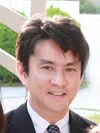
Prof. Eiichi Yoshida, Tokyo University of Science, Japan
Title: TBD
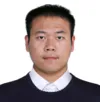
Prof. Lin Shao, National University of Singapore, Singapore
Title: Learning Contact-rich Manipulation Skills via Differentiable Physics Simulation
Europe

Prof. Dr. Dongheui Lee, Technical University of Vienna, Austria
Title: Force-based Robot Skill Identification and Learning

Dr. Abderrahmane Kheddar, CNRS, France
Title: TBD

Dr. J. Rogelio Guadarrama Olvera, Technical University of Munich, Germany
Title: TBD
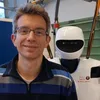
Dr. Olivier Stasse, CNRS-LAAS, France
Title: TBD
America
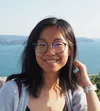
Prof. Yue Hu University of Waterloo
Title: Human factors during physical interactions: what can we quantify and how?
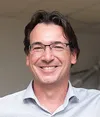
Prof. Luis Sentis, University of Texas, USA
Title: TBD

Dr. Jose Barreiros, Toyota Research Institute, USA
Title: TBD
Workshop Schedule
09:00 – 10:30 Session 1: Invited talks.
09:00 – 09:10 Introduction to the session and the speakers.
09:10 – 09:30 Speaker 1 (15 min presentation + 5 min Q&A)
09:30 – 09:50 Speaker 2 (15 min presentation + 5 min Q&A)
09:50 – 10:10 Speaker 3 (15 min presentation + 5 min Q&A)
10:10 – 10:30 Speaker 4 (15 min presentation + 5 min Q&A)
10:30 – 11:00 Coffee break & student poster session
11:00 – 12:00 Session 2: New sensory systems to enable contact-rich robotics.
11:00 – 11:20 Pitch spotlight presentations
11:20 – 12:00 Interactive session with selected young researchers and live demonstrations.
12:00 – 13:00 Lunch break
13:00 – 14:30 Session 3: Invited talks.
13:00 – 13:10 Introduction to the session and the speakers.
13:10 – 13:30 Speaker 6 (15 min presentation + 5 min Q&A)
13:30 – 13:50 Speaker 7 (15 min presentation + 5 min Q&A)
13:50 – 14:10 Speaker 8 (15 min presentation + 5 min Q&A)
14:10 – 14:30 Speaker 9 (15 min presentation + 5 min Q&A)
14:30 – 15:00 Coffee break & student poster session
15:00 – 16:00 Session 4: New control and learning methods for contact-rich tasks.
15:00 – 15:20 Pitch spotlight presentations
15:20 – 16:00 Interactive session with selected young researchers and live demonstrations.
16:00 – 16:10 Coffee break & student poster session
516:10 – 17:30 Session 5: Invited talks
16:10 – 16:20 Introduction to the session and the speakers.
16:20 – 16:40 Speaker 1 (15 min presentation + 5 min Q&A)
16:40 – 17:00 Speaker 2 (15 min presentation + 5 min Q&A)
17:00 – 17:20 Speaker 3 (15 min presentation + 5 min Q&A)
17:30 – 18:00 Panel discussion and Closure
Organizers

Dr. J. Rogelio Guadarrama Olvera, Technical University of Munich, Germany

Dr. Yue Hu, University of Waterloo, Canada

Dr. Olivier Stasse, CNRS-LAAS, France

Prof. Eiichi Yoshida, Tokyo University of Science, Japan
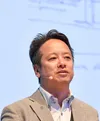
Prof. Gordon Cheng, Technical University of Munich, Germany
Endorsed by







